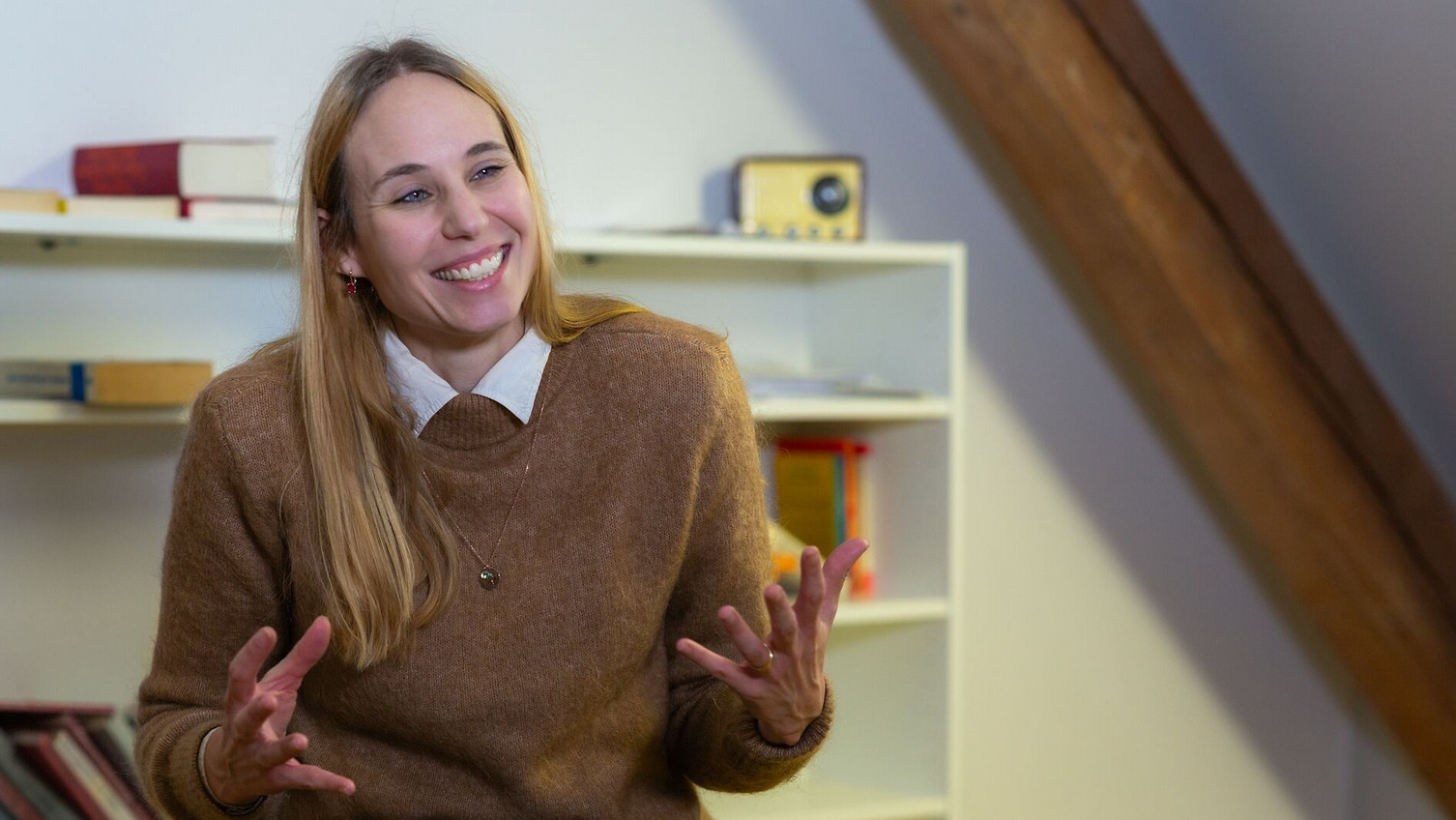Organizational research: Dr. Sarah Stanske – Innovation against fear of the future
2025-03-07 In February 2022, Putin invaded Ukraine and European politicians agreed: Europe must become “warlike”. But how can innovation succeed in highly hierarchical organizations? Business economist Sarah Stanske is conducting research on this topic and is being supported by the Joachim Herz Stiftung with a two-year add-on fellowship.
Military research can lead to innovation. Mobile phones or the internet would hardly be conceivable without the defense industry. However, times have changed, as Dr. Sarah Stanske describes: “Today, startups are a decisive force alongside the defense industry, and that requires a new way of working together, innovating, and organizing.” That is why the organizational researcher is investigating how innovation can succeed in military institutions in the face of the growing threat of war.
Her research is based on qualitative case studies. She conducts interviews, analyzes documents, and does ethnographic research. Specifically, she is investigating how processes can lead to innovation – or block it – in a military innovation unit. “In the EU, guidelines and requirements often prevent progress,” explains Sarah Stanske. In particular, the researcher is concerned with digital transformation and the application of AI, but also with questions of personnel management: How are people in the company taken along with innovations?
In her research, Sarah Stanske focuses on how to deal with dystopias such as a possible war, but also fee cuts for public broadcasting, which brought an organization to the brink of its existence. She explains: “Although management responded with innovation to avert the dystopia, these were ultimately too ambitious to be implemented. So dystopia is a double-edged sword: it can promote innovation, but whether it is ultimately implemented is another matter.”
The program for the Add-on Fellowship is aimed at young scientists in permanent academic employment at a university or research institution. The fellows are funded with around 12,500 euros. The money can be invested in tangible assets such as a laptop or software, but conference visits or transcription services are also conceivable. Parents receive an additional 3000 euros, which can then be spent on childcare.
Sarah Stanske is a postdoc in the field of organization at Leuphana University Lüneburg. She completed her doctorate as part of the Research Training Group of the European University Viadrina (Frankfurt Oder) and the German Graduate School of Management and Law (Heilbronn). Her research has been published in journals such as Strategic Management Society, Harvard Business Review, Research in the Sociology of Organizations and Strategic Organization.

